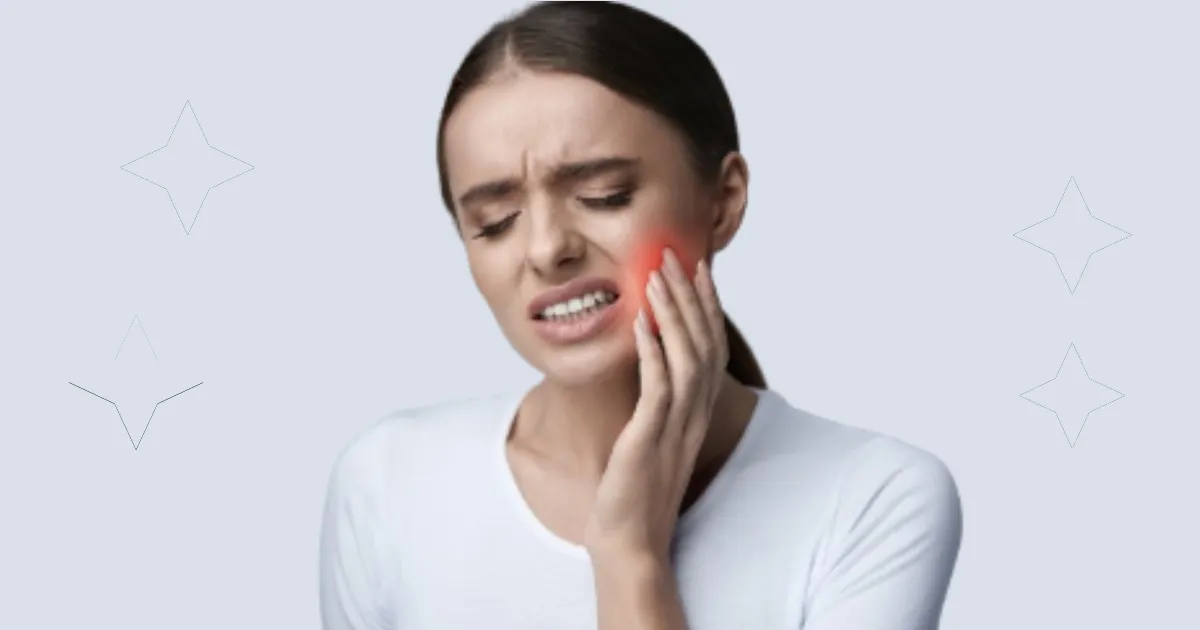
Answers By Verified Professionals, Doctors
Taking care of your teeth is more than just a daily chore—it’s a crucial part of maintaining your overall health. Whether you’re curious about the best brushing practices or wondering how to naturally whiten your teeth, these common questions can help guide you to better dental care. Let’s dive into the top five questions people ask about their teeth and provide comprehensive answers to each.
Table of Contents
- Q. What can one do to reduce the inflammation and soreness of the gums?
- Q. What else can one do to reduce swollen and bleeding gums?
- Q. What is the best way to clean up gingivitis?
- Q. How can gum disease be prevented?
- Q. What are the most common symptoms of gum disease?
Q. What can one do to reduce the inflammation and soreness of the gums?
Dr. Anuvitha Kamath: To reduce the inflammation and soreness of gums, some basic painkiller medicines like paracetamol or ibuprofen seem to be very beneficial. Along with the medicines, frequent gargling of the mouth with salt water or antimicrobial mouthwash helps in reducing the pain and swelling of the gums. Also, avoid eating hard,d crunchy foods, avoid intake of too-hot or too-cold liquids, and brush your teeth very gently to prevent any injury to the swollen gums, which may result in bleeding and excess pain.
Q. What else can one do to reduce swollen and bleeding gums?
Dr. Himanshu J. Vats: There are several things you can do to reduce swollen and bleeding gums: Practice good oral hygiene: Brush your teeth twice a day and floss at least once a day to remove plaque and food particles from your teeth and gums. Use an antiseptic mouthwash: Rinse your mouth with an antiseptic mouthwash to help reduce the bacteria in your mouth and promote healing. Apply a cold compress: Place a cold compress on the affected area to help reduce inflammation and swelling. Eat a balanced diet: Eat a balanced diet that is rich in vitamins and minerals, especially vitamin C, which can help improve the health of your gums.
Q. What is the best way to clean up gingivitis?
Dr Anukriti Pant: Use a medicated mouth rinse to help reduce plaque between your teeth. Supplement daily brushing and flossing with an interdental cleaner, such as a dental pick, interdental brush, or dental stick specially designed to clean between your teeth. Get regular professional dental cleanings on a schedule recommended by your dentist to clean up any buildup of gingivitis.
Q. How can gum disease be prevented?
Dr Kodali Raga Sri Sai Malika: Gum disease can be prevented by maintaining good oral hygiene, brushing twice daily, regular flossing dental floss at least once a day, use of mouthwash regularly, squishing water in the mouth after eating anything, and regular dental checkups. If required, professional cleaning of the teeth at a dental office helps to prevent gum disease.
Dr. Shalini Verma: Gum diseases can be prevented by taking proper care of oral hygiene. Brushing your teeth along the gum line twice a day, at least for two minutes with a soft-bristled toothbrush, is advised on a regular basis. Floss at least once a day to prevent the accumulation of food in between the teeth. Use of antimicrobial mouthwashes. Cutting on sugary diet and acidic beverages also prevents gum or oral diseases and infections. Visit your dentist regularly.
Q. What are the most common symptoms of gum disease?
Dr. Sameeha M S: Gum disease begins with uncontrolled bacterial growth in the mouth and may lead to gingivitis (inflammation of the gum), tooth loss, and pain if not properly treated. Toxins produced by the bacteria and plaque irritate the gums. This can inflame the gums, turning them red or puffy or causing them to bleed. Signs of gingivitis include swollen or puffy gums, red or dark red gums, gums that bleed easily when you brush or floss, bad breath, and receding and tender gums.
Dr Anuvitha Kamath: The causes of gum diseases or periodontal disease are poor oral hygiene, smoking tobacco, autoimmune diseases like lupus, Crohn’s disease, diabetes, stress, hormonal changes during pregnancy, puberty, or menopause. It can be stopped by regular brushing of the teeth twice daily, avoiding vigorous brushing of the teeth, rinsing the mouth with antimicrobial or chlorhexidine mouthwash, avoiding smoking and chewing tobacco, using a soft-bristled toothbrush, flossing every day and getting regular teeth cleaning done by the dentist. Other remedies are antibiotics, tooth scaling, and osseous surgery to reduce pockets around the teeth.
Learn more about health-related treatment options. Click here
Related Video | About Your Teeth
Was this article helpful?
Stay updated with the latest posts on HealthToLife—expert health tips, wellness trends, and life-changing advice you don’t want to miss. Click to explore.



